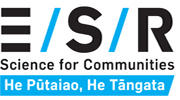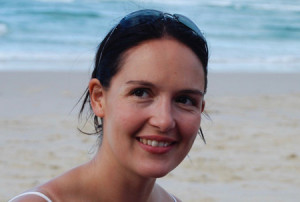How Aotearoa science is supporting global efforts to stop plastic pollution
By Olga Pantos, ESR Senior Scientist, Health and Environment
This month marks Plastic Free July – an opportunity to check in on a historic resolution to end plastic pollution and forge an international legally-binding agreement by 2024. It’s also a good time to ask how this treaty could affect Aotearoa New Zealand, and what role science can play in tackling the environmental impact of plastics.
Heads of state, ministers of environment and representatives from countries, including Aotearoa, gathered at the United Nations Environment Assembly in Kenya last year to endorse a ground-breaking plastics agreement, which Director of the UN Environment Programme Inger Andersen described as “the most significant environmental multilateral deal since the Paris accord.”
The Global Plastic Treaty lays out the framework for an Intergovernmental Negotiating Committee to create a legal mechanism – based around the idea of Multilateral Environmental Agreements(external link) – that will "address the full lifecycle of plastics, the design of reusable and recyclable products and materials, and the need for enhanced international collaboration to facilitate access to technology, capacity building and scientific and technical cooperation." Experts have already come together at a series of meetings to begin to hammer out the details.
The ambitious timeline of the resolution, which seeks to have a legally binding agreement in place by next year, is a recognition of just how urgent this challenge is. Since the 1950s, when plastics became a household commodity, 8.3 billion tonnes have been produced, with the majority used for single- or short-use. With only five percent of plastics having ever been recycled, 79 percent ends up in landfill or leaks out into the environment, with the remaining burned.
It's predicted plastic production, use and leakage will more than double by 2040 under business-as-usual conditions, with an additional 250 million tonnes of plastic pollution entering aquatic environments, and almost twice this amount making its way into the land.
From global to local
So why is it important to have these sorts of global agreements, and what does this one mean for Aotearoa? There is country by country variation in the levels of consumption of plastics, and the level and nature of impacts. There are also negative effects on the environment associated with plastics, from production to the end-of-life. But all countries, environments, ecosystems and organisms are affected.
We also know plastics use is intimately linked to climate change, with more than 99 percent of plastics made from fossil fuel feedstock and the polymer production. This means the manufacture of items, and their end-of-life management – whether recycling or burning– contribute significantly to greenhouse gas emissions. Then there’s all the transportation that occurs in-between those stages of its lifespan.
Furthermore, the impacts of plastic-associated pollution, as with climate change, are inequitable. For example, indigenous communities use the least plastic, but are impacted the most. Both directly and indirectly, due to impacts on their health, the health of the environment and consequently their local economy, food security and cultural traditions.
It’s important to not bury our heads in the sand and pretend this is a crisis happening elsewhere. While Aotearoa might not have a lot of visible plastic pollution, on average each New Zealander sends nearly 60 kilograms of plastic to landfill every year. On a per-capita basis, that makes us one the most wasteful nations in the world. We also produce a lot of products for export that are wrapped in plastic packaging, as well as exporting our plastic waste to other countries. So, one way or another, we’re making a lot of plastic other people’s problem. Which is another example of the inequity of the plastic pollution problem.
It’s clear we must act now, become better custodians and actively demonstrate global stewardship of this global problem. That’s where science comes into it: experts from the Institute of Environmental Science and Research (ESR) along with our colleagues here and overseas, and other partners from community to industry, are working to support this endeavour.
Science-led solutions
While a great deal of research about the effects of plastic pollution exists, comparatively few studies have been carried out in Aotearoa. To tackle the issue, it’s critically important to understand the state of plastic pollution here and then examine the impact on our unique flora, fauna and environment, as well as its wider impacts.
Over the last few years work has been underway to understand the levels and types of microplastic pollution in our marine environment, including surface waters, beach sands and biota, and the potential implications of this. We’ve also been investigating microplastics in our productive soil systems, and what the consequences could be for our land-based ecosystems.
The video below gives a good overview of some of this microplastics work:
Although this is a relatively new area of research, the data and insights being gathered will be crucial for informing the types of interventions Aotearoa can explore as part of the plastics pollution treaty, and also for monitoring the impact of those interventions.
Remaining hopeful
The scale of plastics pollution is so immense, it’s easy to become overwhelmed and despondent. But we must remain hopeful we can create a healthier environment for all; led by science, working together to rethink the way we produce, consume and dispose of plastics. The global plastics treaty is one step – of many – in the right direction. But even the small steps made by each of us every day in reducing our reliance on plastic will make a big difference.
Olga Pantos was a member of the UN Environment Programme working group that informed recommendations for the plastics treaty, and part of the Office of the Prime Minister’s Chief Science Advisor expert working group on Aotearoa’s future with plastics. She is a member of the Scientists' Coalition for an Effective Plastics Treaty(external link), is an adviser to the Tangata Whenua Coalition for an Effective Plastics Treaty(external link), and has attended ongoing plastics treaty negotiations. She is a senior scientist at ESR.

